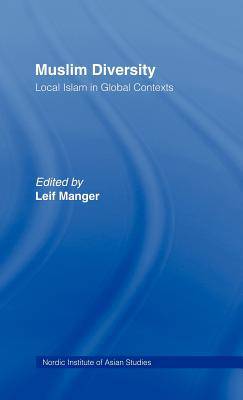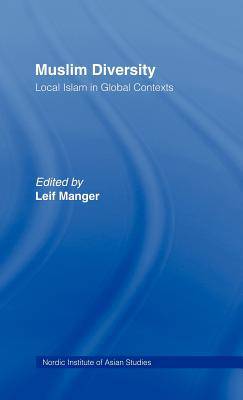
- Afhalen na 1 uur in een winkel met voorraad
- Gratis thuislevering in België vanaf € 30
- Ruim aanbod met 7 miljoen producten
- Afhalen na 1 uur in een winkel met voorraad
- Gratis thuislevering in België vanaf € 30
- Ruim aanbod met 7 miljoen producten
Omschrijving
The term 'local Islam' has been coined to describe local responses to the effects of globalisation in the Islamic world. All contributions to this volume present cases of 'local Islam' as well as discussing the term itself. But what all of this group of anthropologists and historians convey is a feeling of dissatisfaction with the very term. Their uneasiness relates to the conceptual problems arising from seeing Islam as either local or global. Rather, the authors argue in favour of a focus not on Islam but on the lives of Muslims, putting their lives into the context of complex historical developments. Ranging across much of the vast extent of the Islamic world - from West Africa and the Near East to China and Southeast Asia - the contributions deal with the effects of migration on local Islamic traditions in Bangladesh; conflicts between Muslim sects in Pakistan; the development of jihad in West Africa; the problem of maintaining a Muslim identity in China; how Javanese Muslims combine their Islamic faith with belief in a local Javanese spirit world; the comparison between urban- and rural-based Islam in Syria; and (in two studies from western Sudan) issues of belief and broader aspects of identity management in a multi-ethnic situation.
Specificaties
Betrokkenen
- Auteur(s):
- Uitgeverij:
Inhoud
- Aantal bladzijden:
- 270
- Taal:
- Engels
- Reeks:
- Reeksnummer:
- nr. 26
Eigenschappen
- Productcode (EAN):
- 9780700711048
- Verschijningsdatum:
- 5/03/1999
- Uitvoering:
- Hardcover
- Formaat:
- Genaaid
- Afmetingen:
- 140 mm x 216 mm
- Gewicht:
- 498 g

Alleen bij Standaard Boekhandel
Beoordelingen
We publiceren alleen reviews die voldoen aan de voorwaarden voor reviews. Bekijk onze voorwaarden voor reviews.











